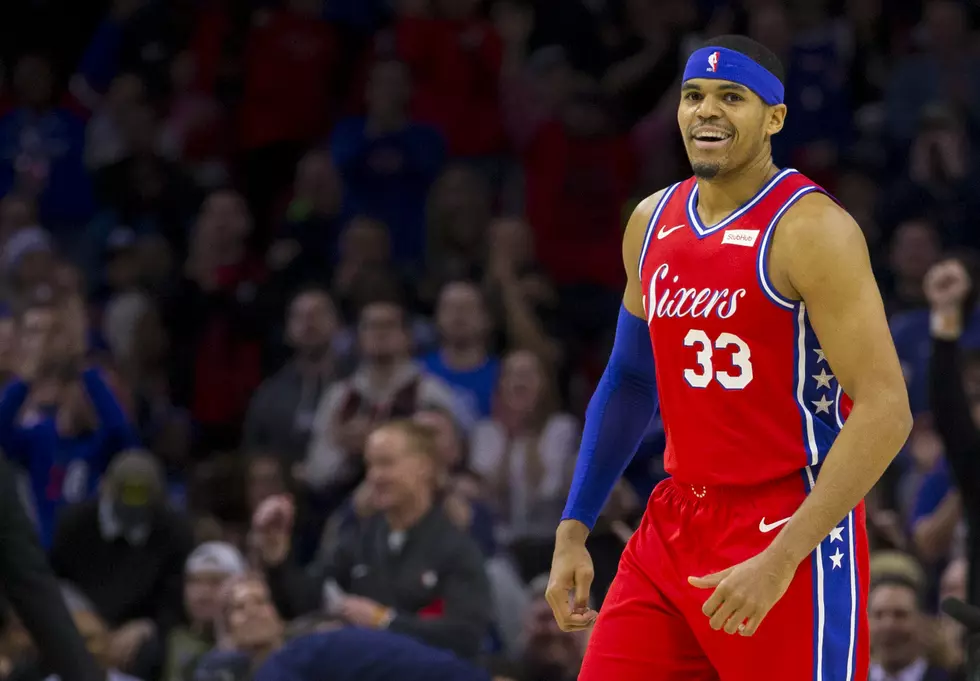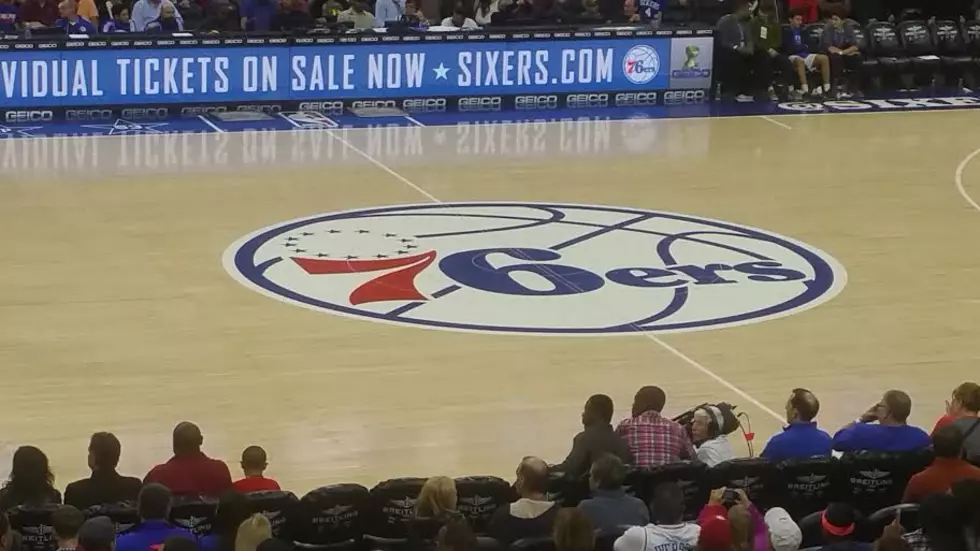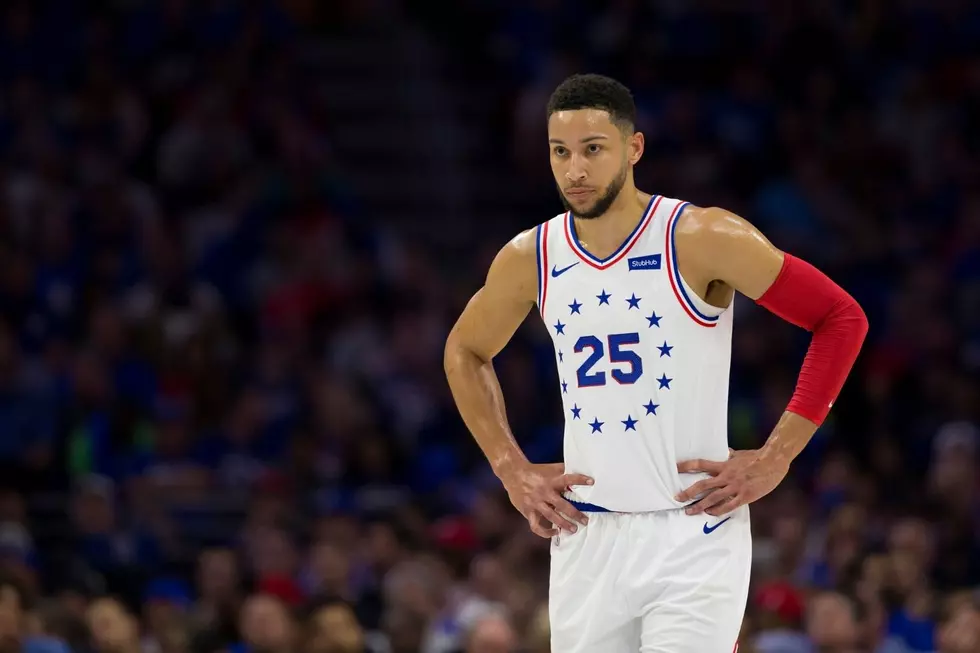
ESPN’s Pelton: Sixers Get Mixed Reviews for Three Trades
By adding Tobias Harris, Boban Marjanovic, Mike Scott, James Ennis, and Jonathan Simmons, the Philadelphia Sixers made some noise at the NBA trade deadline.
While it’s believed Harris is the best player involved in the deal, the other four players has given the Sixers bench some veteran presence, and much needed depth, that was lacking before the deadline. Marjanovic gives the team an efficient backup to Joel Embiid, while the other three players bring in a scrappy style of play and some much needed wing defense on at the three-point line.
In acquiring these five new players, the Sixers sent Landry Shamet, Wilson Chandler, Mike Muscala, a 2020 first-round pick, a 2021 unprotected first-round pick via Miami, and a 2021 and 2023 second-round pick and Markelle Fultz away.
So were these the right moves to make?
Earning a “B+” from ESPN’s Kevin Pelton for the Fultz deal to Orlando, who he gave a C, the Sixers finally had to give up on the former No. 1 overall pick.
How's this for irony: Remember that group of 12 players (noted above) shooting worse than Fultz beyond three feet this year? Simmons, hitting 28 percent, is one of them.
That's somewhat out of line with Simmons' track record (he's a 35 percent career shooter beyond three feet, including 38 percent last season) but still a concern if the 76ers see him as a rotation player. Never much of a 3-point shooter, Simmons has struggled badly from midrange this year and been one of the league's most inefficient scorers with an ugly .445 true shooting percentage.
Much more so than Simmons, the real value for Philadelphia in this trade is the picks, which help replenish the four traded to the LA Clippers earlier this week. The Sixers will hope to get a 2020 first-rounder from Oklahoma City. They're likely out their own first-round pick in the same year (lottery protected) due to that deal.
Obviously, that's selling very low on a player the 76ers gave up the No. 3 pick (used on Jayson Tatum) and Sacramento's 2019 first-round pick to get the chance to draft. Still, I think it's possible that Fultz's value could have decreased as his prospect sheen got further removed and he continued to struggle with either his health or his shooting. A return in Philadelphia never seemed like a good idea given all the scrutiny, and this way Orlando gets the possibility of Fultz taking the court this season plus a full offseason to work with him.
While the Sixers finally parted ways with Fultz, they added Simmons because of his defensive toughness and added two picks in the process.
The 29-year-old is averaging 6.9 points and 2.4 rebounds in 20.6 minutes per game mostly off the Magic's bench this season. Overall, he’s shooting 36 percent from the field and 22 percent from long range.
But the biggest key to the deal is that the Sixers are getting two draft picks in the deal, one first-round and one second-round pick.
Throw in the fact that the only player the Sixers gave up was Fultz, who hadn’t played since Nov. 19, and it looks as though the Sixers are the early winners of the deal.
The biggest win in the deal, according to Pelton?
Financial flexibility.
This particular deal also gives the Sixers possible salary relief this summer. Just $1 million of Simmons' $5.7 million salary is guaranteed, giving Philadelphia the option of moving on and having more flexibility with regards to the luxury tax if both Jimmy Butler and Tobias Harris re-sign as free agents. Alternatively, if one of them leaves, the 76ers will now have more cap space to use on a replacement.
As for the Harris deal, which many considered to be a home run, Pelton thought the Sixers maybe gave up to much in the deal.
In the long run, the Sixers paid dearly to add Harris. This deal joins last week's trade by the Dallas Mavericks for Kristaps Porzingis as just the second in nearly four years in which a team sends out two future first-round picks without getting any in return. The 76ers go from having a single extra draft pick coming after years of stockpiling them to now giving up that pick (unprotected from Miami in 2021) and being out one of their own, most likely in 2020. (Things would have to take a dramatic turn for Philadelphia to miss the playoffs and keep that year's first-rounder.)
There's a financial price coming, too. The 76ers will have to re-sign Harris as an unrestricted free agent this summer, and he'll surely command a max deal. Add in a new max deal for Butler -- we think -- and in the optimistic scenario Philadelphia will have a $120 million payroll in 2019-20 before attempting to re-sign Redick or add anyone else to the roster. Most likely, the Sixers will be in the luxury tax if they re-sign both Butler and Harris, and that's before Simmons' salary escalates when he's eligible for an extension that would kick in the following season.
Harris adds a solid 3-point shooter, having hit 43 percent beyond the arc so far this season, making him a huge upgrade to Wilson Chandler. Plus Scott (38 percent) is a comparable 3-shooter to Muscala (34 percent) and Marjanovic is an upgrade as a backup center.
While the Sixers looked to add another piece to make a championship run now, the Clippers looked at the financial standpoint of the deal. Moving Harris, a free agent to be, puts the pressure on Elton Brand to bring him back next season..
For that, Pelton gave Philadelphia a “C- grade and the Clippers an A for the deal.
Finally there was a deal that had the Sixers land Ennis, a 3-and-D player, who will step in a give the team more veteran depth on the bench.
For the Sixers, Ennis provides wing depth and insurance against needing to add a player in the buyout market. Philadelphia will surely pursue buyout candidates including Wayne Ellington and Wesley Matthews, but Ennis is a low-cost Plan B who still might get minutes anyway given how thin the 76ers are on the perimeter after giving up both Wilson Chandler and Landry Shamet in the Tobias Harris trade.
He's an upgrade over Corey Brewer, who actually started three games while playing for Philadelphia on a pair of 10-day contracts, but is too ineffective a shooter to be considered an option in the postseason.
Pelton gave this deal a B for the Sixers and a C for the Rockets, who gave up swap rights on a second-round pick in exchange for Ennis.
More From 600 ESPN El Paso










